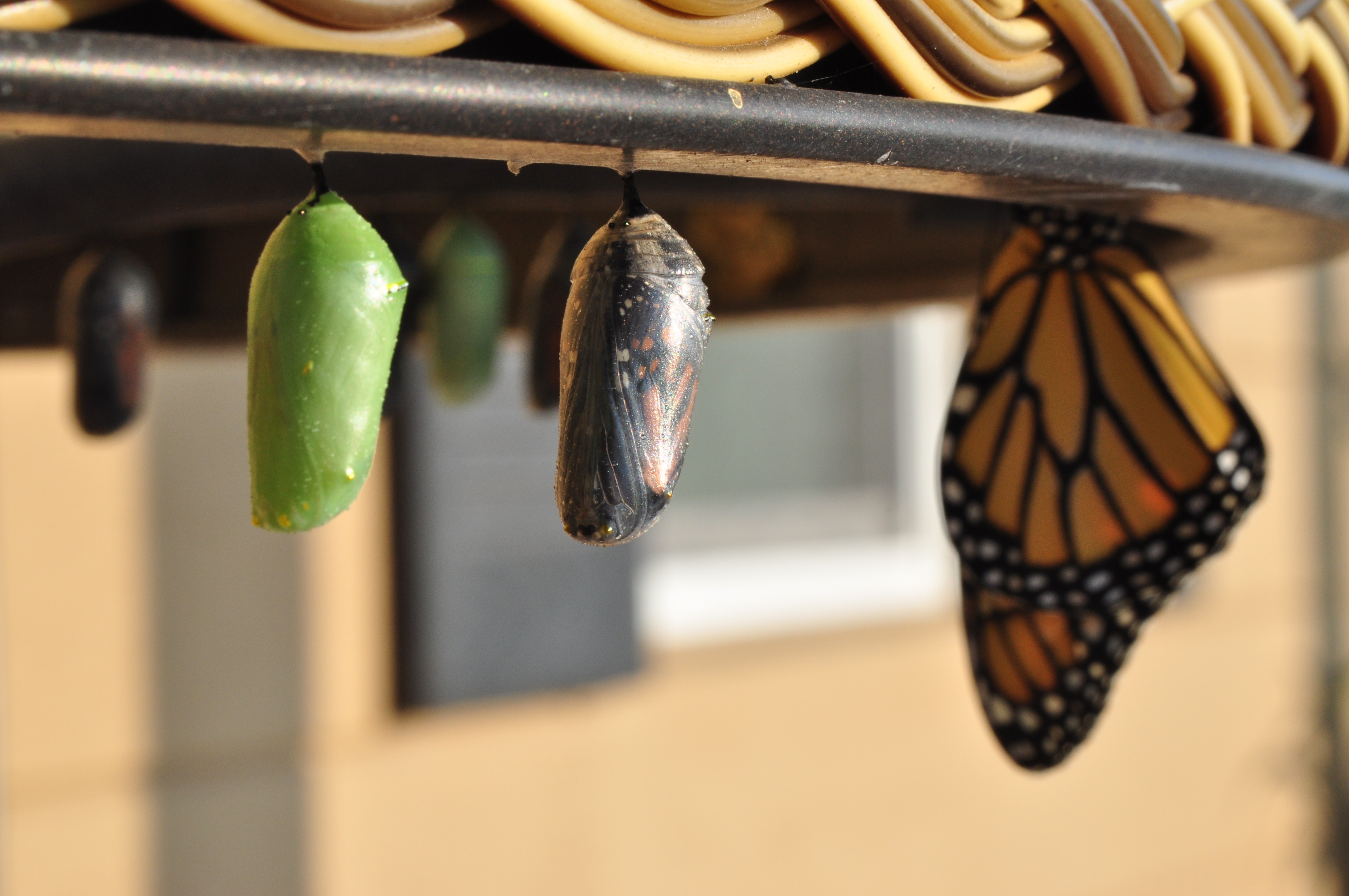Welcome to our special section, Thrive on Campus, devoted to covering the urgent issue of mental health among college and university students from all angles. If you are a college student, we invite you to apply to be an Editor-at-Large, or to simply contribute (please tag your pieces ThriveOnCampus). We welcome faculty, clinicians, and graduates to contribute as well. Read more here.
“Podcasts? What are those?”
My freshman year in college in the U.S. as an international student consisted of a vast array of life insights. The most unique among these was the discovery of podcasts.
During one of my first meals in the dining hall with friends, suddenly the topic of podcasts came up. Fellow international students and I looked at each other with bewilderment and intrigue. I spent most of my childhood in Italy, and the word “podcast” had never come up among Italian students.
The Americans at the table gave an empathetic chuckle and explained to us for the remainder of the dinner what podcasts were, and why they were so meaningful in their lives.
Looking back at this incident now as a graduate student who’s likely listened to hundreds of podcasts over the last few years, I can’t help but chuckle myself. Though I was unaware of it then, that evening marked a significant moment in my life in the way I tune into myself, and to the happenings of the world.
Podcasts have become a secret companion in my everyday activities and — cheesiness alert — I swear they’ve helped increase my physical, emotional, and mental health.
Here’s the 5 reasons why I’ve grown to love podcasts, and how they could help increase your well-being!
1. Reduce anxiety in potentially stressful situations
Do you suffer from claustrophobia? Do you find navigating highly crowded supermarkets stressful? Do you often mindlessly flip through Twitter or Instagram to pass the time while waiting in long lines?
If you’ve answered yes to any of the questions above, then podcasts may just be the perfect addition to your life.
Podcasts can be a useful and informative distraction in situations that could potentially increase anxiety. I know this from personal experience; I used to suffer extreme claustrophobia, which brought me a lot of unnecessary stress during commutes on public transportation. But since I introduced podcasts in my life, I noticed a drastic shift and decrease in my claustrophobia. Suddenly, commutes became enjoyable. I began to look forward to these moments: Podcasts empowered me to become comfortable in what were once highly stressful situations.
2. Strengthen your critical thinking abilities
A study from 2017 from the Norwegian Institute of Public Health assessed, in part, how podcasts can help parents who are not health care personnel critically assess health claims. The results are impressive. Of the parents involved who listened to the podcast, 34 percent more people passed the test that measured their ability to critically assess health claims. This group was compared to parents who simply listened to a series of public health information announcements on similar topics.
The study indicates that those parents who listened to a podcast could be taught to more effectively assess claims about health effects, despite their previous lack of expertise in the subject.
Personally, I know I have improved my critical thinking abilities through podcasting. While I may not remember everything I listen to, I know that even just the exposure to certain ideas, or phrases has been enough to get the wheels rolling in my mind on certain topics I otherwise wouldn’t have sought out independently.
One such topic, for example, is medicine. Never in my life have I truly been interested in the topic of medicine or even come close to taking related subjects in college. But a few days ago, I listened to a podcast on TED radio hour, “Rethinking Medicine,” that offered really interesting perspectives on the ways our approach to treating diseases is in many ways outdated, and how people are revolutionizing the ways we understand medicine.
Even as a non-med expert, I walked away with more tools to think critically on this subject. As the Greek philosopher Socrates once said:
“Education is the kindling of a flame, not the filling of a vessel.”
Podcasts may just be the kindling to help strengthen your intellectual fire.
3. Improve your sleep
For years, I faced difficulty falling asleep. No matter how tired I was, somehow, I found myself tossing and turning for hours before dozing off.
I tried many different strategies to get better sleep: curfews on screen time, chamomile teas, soothing music, regulating room temperature, and even going as far as purchasing a new mattress.
None of these strategies seemed to produce any lasting results.
Until I discovered podcasts.
Listening to podcasts, even if I remembered absolutely nothing the morning after, was incredibly useful in lulling me to sleep. As with the commutes, I attribute the power of podcasts in this situation to their useful distracting power: I realized that no matter how many strategies I tried to improve the quality of my sleep, none of these could suppress my mind from thinking (… overthinking, life). While I realize that for many people receiving information while trying to fall asleep could actually made them more awake, in my case, it was effective because it helped distract me from my worries.
Here are some of my favorite bed-time podcasts: Sleep With Me, New Yorker Fiction, Guided Sleep Meditations, and Miette’s Bedtime Story.
4. Add fun to mundane tasks
When I was a child, my all-time favorite book was What Can You Do With A Shoe? by Beatrice Schnenk de Regniers. The author ran through all the unexpected and quirky ways to use a shoe: Put it on your ear, fill it with pickles or popcorn, help a bird build a nest in it… The point was that the mundane objects in our life prove exciting and add magic into your everyday life with a little creativity.
Adding podcasts to your life is also a creative way of adding magic to the mundane. Here are some ideas from my own version of the shoe book:
“What Can You Do With a Podcast?”
- Take it to the dentist to distract you from your next filling for a few laughs from Comedy Central’s podcast of “The Daily Show.”
- Take it to the bathroom when you’re brushing your teeth (you could avoid another filling!) to deepen your knowledge on politics with an episode of NPR’s” Politics Podcast.”
- Take it to the grocery store to make it a deep philosophical experience as you listen to the TED radio hour episode on “What is Beauty?”
This hands-free activity could lift your spirits and exercise your mind in the most unexpected ways without breaking your everyday routines.
5. Enrich your travels to a new country or city
Recently, my partner and I visited Paris for the holidays. Both of us share a love for deepening our knowledge of other cultures and histories, but we are also always searching for different and more meaningful ways to educate ourselves.
One of the ways we found to add more meaning to our traveling and learning experiences is by taking sightseeing at our own pace, through podcasts. The streets and sites of Paris came alive simply by downloading a few free audio tours and listening to them by sharing a pair of AirPod headphones.
Our favorite podcast series for Paris was Rick Steves’ Paris audio tours. Steves produced a whole series of guided tours for Paris’ key sights, and also some lesser-known attractions (bonus: he also has a wonderful sense of humor!).
Podcasts can be a wonderful complement to your travels. If you’re visiting a country with easy WiFi access, carrying phone and headphones with you during your trip, downloading a few audio tours can help you save money on fancy guidebooks or walking tours.
Subscribe here for all the latest news on how you can keep Thriving.
More on Mental Health on Campus:
What Campus Mental Health Centers Are Doing to Keep Up With Student Need
If You’re a Student Who’s Struggling With Mental Health, These 7 Tips Will Help
The Hidden Stress of RAs in the Student Mental Health Crisis


